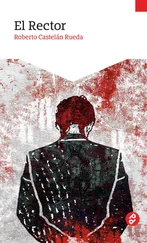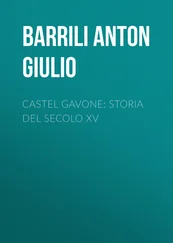Orly Castel-Bloom
Textile
The Law of Shatnetz:
You shall keep my statutes. .
You shall not sow your field
with two kinds of seed,
nor shall you wear a garment of cloth
made of two kinds of material.
Leviticus 19:19
The laws of shatnez are considered so important that one who sees another person wearing shatnez is supposed to strip the offending garment from the wearer, even in public and even if the wearer is one’s rabbi. Some legal authorities, however, softened this stipulation, saying that if the person wearing shatnez is doing so unintentionally then one should wait to speak to this person privately (Shulhan Arukh 303:1 and comment of Moshe Isserles). http://www.myjewishlearning.com/practices/Ethics/Our_Bodies/Clothing/Shatnez.shtml
A TAXI STOOD ON THE CORNER OF YOCHEVED BAT-MIRIAM and Alexander Penn Street with its lights on and its engine off. On the back window was a message in big, white handwritten letters which said: I DRIVE ON GAS, NOT GASOLINE. AND YOU?
The light from the decorative street lamps joined the soft beams shining from amid the vegetation of the flourishing front gardens, which were all the same: three lemon cypresses, another three or five Thai ficuses, and one strange and unfamiliar tree that had shed its leaves and whose trunk was covered by thick, short thorny growths with hard, menacing points.
Taller and more prominent than these plants was a kind of slender palm whose large, feathery fronds looked as if they were bursting from a fountain with a low-pressure jet. This palm — which had been imported at the end of the nineties, was called a coconut palm ( Syagrus romanzoffiania ) even though it bore no relation to the edible coconut fruit — required very little water, while its rapid and imperious growth produced results of a cunning and historically helpful nature: it gave rise to the impression that the suburb of Tel Baruch North had not been established yesterday or the day before, but had been there for years. As the tall, flourishing coconut palms proved.
The suburb of Tel Baruch North was special, very different from the undistinguished sister suburbs surrounding it, and although it had been set up in the blink of an eye and was completely new — it proclaimed seniority and permanence, even if life itself was fleeting. An impressive achievement that explained the high price of the apartments.
GEOGRAPHICALLY SPEAKING, Tel Baruch North is situated to the north of the old Tel Baruch, but also to the south of the old established Kiryat Shaul, famous for its two vast cemeteries: one for the fallen in the wars of Israel, and the other for the ordinary dead, who are hardly ever buried there at public expense anymore, since it is over capacity and plots are hard to come by and cost a fortune.
Despite its proximity to Kiryat Shaul, it never occurred to any of the planners of the suburb, which arose as if overnight, to call the new suburb Kiryat Shaul South. And rightly so. The word “south” gives rise to horror among the many denizens, or would-be denizens, of the affluent “north,” and to call a North Tel Aviv suburb Kiryat Shaul South would mean financial suicide as well as being socially insensitive. But the founders of Tel Baruch North (Telba-N.) were no fools. They drilled to the depths of human thought and took into account both the differences between North and South, and the difference between tel , a hill or permanent natural phenomenon, and kirya , a man-made township, here today and gone tomorrow. In this successful concept they cunningly encompassed death, deterioration, and extinction — in other words the absence of the above. They wanted and got a superior location that proclaimed: I’m here to stay, and soon a generation will arise that will have no idea that once I never existed.
BUT ALL THE MOCKERY in the world vis-à-vis this expensive piece of real estate fades and dies in the twilight hour, when a natural pink lights up the neighborhood and all the artificial forms of lighting that illuminate the houses are refracted by the pale, shiny marble surfaces. Then a kind of halo is created around some of the buildings. A halo that even lends a spiritual significance to these stepped buildings containing apartments with alternating porches, which provide privacy and a certain kind of beauty, duplexes, triplexes, penthouses, and also ordinary four-roomed apartments, which no doubt lack for nothing either.
In those days in Israel it was no simple matter to work up enthusiasm about anything, but the place left a powerful impression, and gave rise, even in the driest and most arid hearts, to eager aspirations that had seemed lost to them. Fearful souls too, and those whose brains had been riddled by time until they were almost hollow, could not help but be captivated by the cute electric blinds, the graceful porches bounded by balustrades of transparent, tempered glass. And all these wretched, ravaged souls could not help but connect all this beauty and luxury to some kind of posterity beyond their grasp.
And if the blinds and the lighting and the porches themselves failed to impress, the job was done by the hanging gardens that embellished the porches and, with unparalleled aesthetic integrity, maintained stylistic uniformity with the vegetation in the front gardens.
TO BE FAIR, we should point out that together with profound admiration and appreciation, it sometimes happened that envy raised its head and overcame even those who regarded themselves as cool customers, capable of exerting absolute control over the most extreme situations. This envy was fierce and devastating, and it wreaked havoc even among all kinds of social democrats, who would, on principle, never live in a place where money was so important. Like autumn leaves, the mask of hypocrisy fell from the faces of the envy stricken, their jaws dropped, and they were overcome by bitterness at the fact that they had no part in this real-estate marvel.
THE DRIVER OF THE TAXI that drove only on gas was a young man of thirty-five who had a beard and wore a black skullcap. In the past he had been a star footballer, playing center forward for Maccabi Tel Aviv, but he had become religious and retired from the game. He was waiting next to his car for a fare who had asked for a taxi that drove on natural gas, and he was wondering whether to call the fare on the phone or to wait a few minutes longer. He was the one who had arrived early after all.
The ex-football player looked around at more of the fine buildings in this new suburb that had grown up south of Kiryat Shaul, in order to take in the place that the top 10 percent had recently built for itself, in spite of the recession.
He thought that the people who lived here lived exactly like he himself would live if only he had persevered in his brilliant football career. He too felt that he was being invaded by envy, but since he was a man inspired by the wisdom of thousands of years, he succeeded in restraining his covetousness in a second.
He simply raised his eyes to heaven, just as the rabbi had told him to do at least once a day in order to understand the place of the individual as opposed to the rest of the world, took a couple of deep breaths, and erected a barrier between himself and the eternal bliss, imaginary or not, radiated by the suburb of Tel Baruch North.
IRAD GRUBER, who was only fifty, but who in the past month had been so depressed that he looked like sixty-five, walked down the path between the seasonal flower beds and looked round irritably for the taxi that was supposed to take him to the airport. With one hand he dragged a medium-sized suitcase on wheels, and in the other he held a heavy briefcase containing important documents and a laptop computer.
Читать дальше












